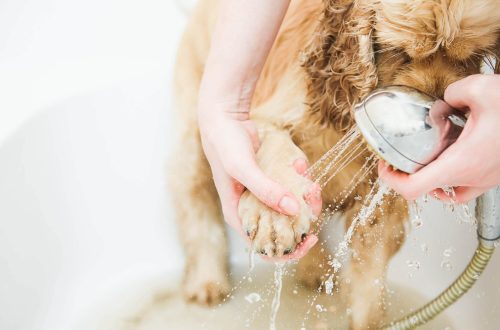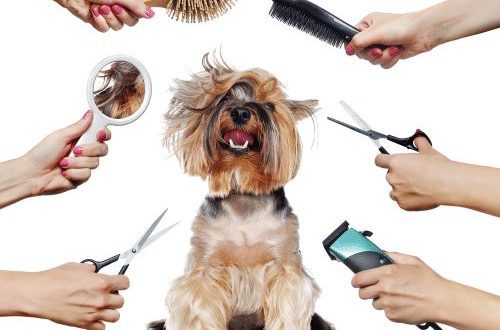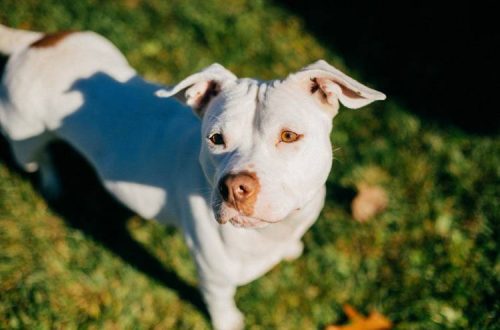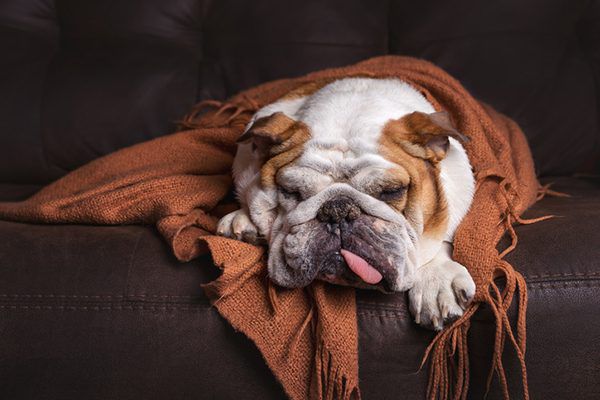
My dog sleeps all day: is this normal?
Have you ever thought, “My dog sleeps all day. That would be the same for me!” Animals sleep more than humans, and while we might be a little jealous of puppies’ luxurious habit of taking five-hour naps during the day, it’s important to understand why they sleep so much and to know what excessive sleep in dogs actually looks like.
Contents
How many hours of sleep does a dog really need?
When you interact with other dog owners, you might be curious if their pet sleeps all day. Unfortunately, comparing your dog’s actions to another dog’s habits is not the best way to determine what is normal. How much sleep a pet needs depends on many factors: age, breed, activity level, and environmental conditions.
According to the American Kennel Club (AKC), if your dog sleeps 12 to 14 hours a day, you probably have nothing to worry about. However, if she sleeps more than 15 hours a day, you should pay close attention to how she behaves while awake. If she seems lethargic or withdrawn from people and other pets, it’s time to visit a veterinarian.
When you feel like your pet is sleeping more than usual, be aware of changes in the environment. Small changes in her life can lead to big changes in her sleep habits.
- New pets. If a noisy kitten suddenly appears in the house, your dog may be looking for a quiet place to rest.
- Hot weather. If she experiences summer sleepiness, watch for signs of hyperthermia such as lethargy, excessive salivation, or vomiting.
- Changing the daily routine. Have you recently got a new job or changed your work schedule? A dog that stays home alone for a long time can get bored and depressed.
- Increased game time. Has your puppy recently started attending a new dog daycare? Do you two run 5 km? Increasing play time or exercise can cause your baby to be exhausted and take some time to adjust to the new level of exercise before returning to their normal sleep patterns.

Puppies: play at full strength, sleep without hind legs
When it comes to how much sleep a dog needs, age is an important factor. Just like children need plenty of sleep, the AKC notes that your puppy needs 15 to 20 hours of sleep a day to help his central nervous system, immune system, and muscles develop properly. Many puppies will make up for the right amount of sleep by taking naps during the day. Let him sleep in the same quiet, comfortable place so you can set a routine, and try not to let kids or other pets get in his way.
The smallest puppies need to be put to bed at the same time to accustom them to the regimen. Turn off lights and sources of noise, such as the TV, around the same time every night so that your pet understands that he should go to bed when you go to bed.
Sleep and aging
Older dogs tend to need more sleep than younger or adult dogs – they often take longer to recover from exercise. The PetHelpful website notes that older dogs can sometimes become less active due to joint pain. If your dog not only sleeps more but still has difficulty standing and walking, he may be developing arthritis.
An examination by a veterinarian will reveal what may be causing the joint pain. Your doctor may recommend moving your pet’s bed to a warmer location and adding extra bedding, and monitoring your dog’s weight to avoid putting extra stress on his joints.
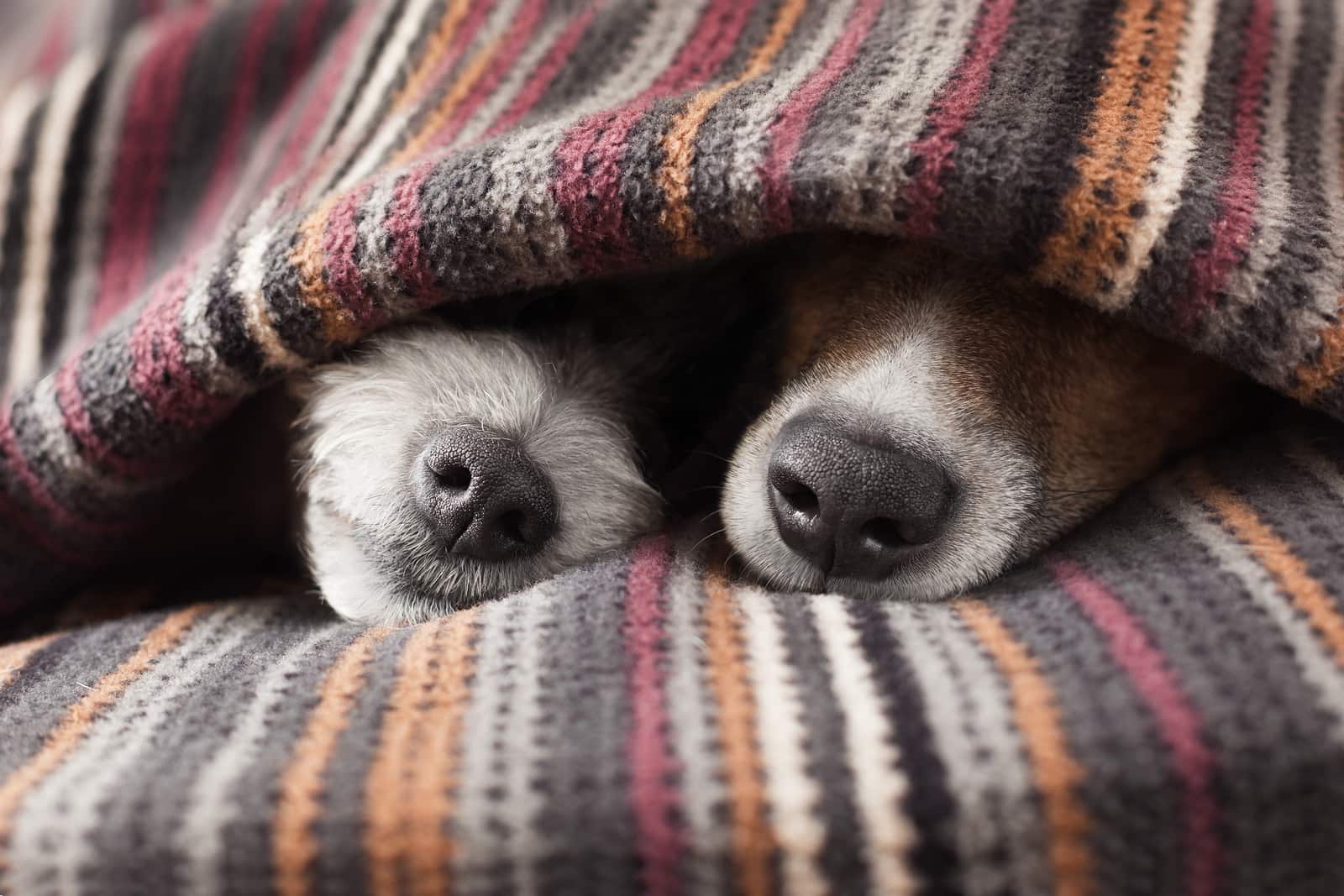
The dog sleeps all the time: other factors
The Mother Nature Network notes that large dogs tend to sleep more than their smaller counterparts. Newfoundlands, St. Bernards, Mastiffs and Pyrenean Mountain Dogs are especially known for their love and devotion to floor mats. If you have a large mutt who likes to sleep, perhaps she just had very calm ancestors.
It’s probably not something to worry about if your pet takes an extra hour of naps here or there, but if it’s accompanied by a change in diet, unusual thirst, or excessive urination, it’s time to call your veterinarian. This combination can sometimes indicate canine diabetes or kidney disease.
It is worth observing how the pet behaves during sleep. While most owners have seen their dog run in their sleep, other movements can be a wake-up call that indicates a problem. A dog that stops breathing or snores is at risk of developing respiratory problems. On the other hand, if she sleeps so soundly that she doesn’t even hear the doorbell, she may have hearing problems.
Diet can also play an important role in a dog’s sleep behavior. If she is not getting enough nutrition, she may not have enough energy to stay awake. Watch your pet to see if he is getting enough nutrition to keep him active.
If you’re worried about your pet’s sleep patterns, watch out for eating, playing, and defecation behaviors, as well as unusual sleep behaviors. Saying “My dog sleeps all day” isn’t enough to figure out a potential problem, so make sure your veterinarian has enough information to figure out what’s going on.
Sleep well
When it comes to dog sleep, there is no simple answer to whether your dog sleeps too much or too little. The best way to know for sure is to analyze a typical day for your dog and share the details with your veterinarian at routine checkups. He will find out if your dog’s sleep schedule is normal, and if it is not, he will recommend changes to the regimen or an examination. Once you understand that your pet’s sleep patterns are normal, you too can rest easy knowing that your dog is healthy and all right.



